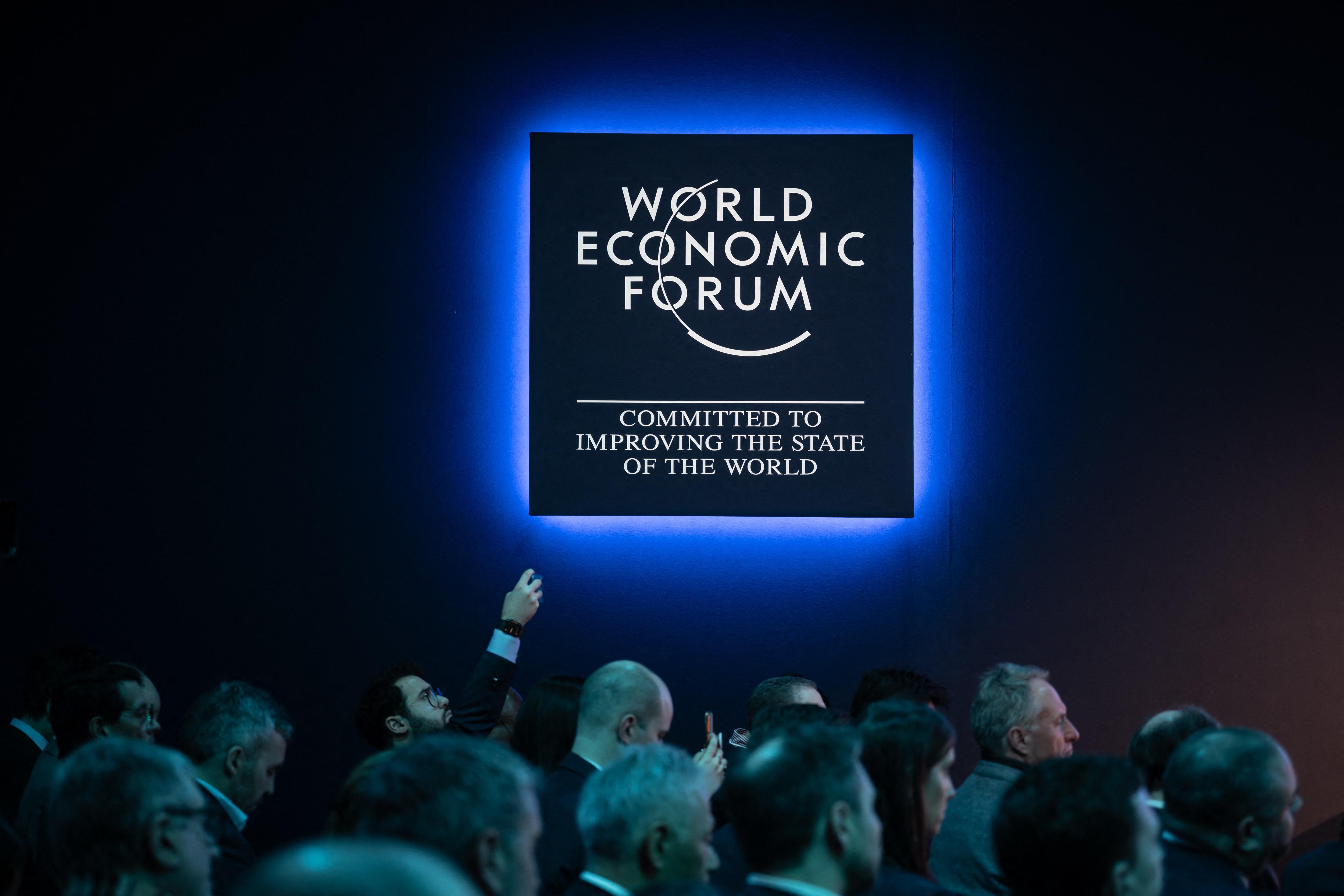 Participants are seen during a session of the World Economic Forum (WEF) annual meeting in Davos on Jan 17, 2023. The Alpine resort of Davos will host the 54th annual meeting of the World Economic Forum from January 15-19, 2024. (PHOTO / AFP)
Participants are seen during a session of the World Economic Forum (WEF) annual meeting in Davos on Jan 17, 2023. The Alpine resort of Davos will host the 54th annual meeting of the World Economic Forum from January 15-19, 2024. (PHOTO / AFP)
Risk specialists see extreme weather and misinformation as most likely to trigger a global crisis in the next couple of years, a World Economic Forum (WEF) survey released on Wednesday said.
While extreme weather was identified as the bigger risk in 2024, misinformation and disinformation came second and were found to be the most severe global risk over the next two years.
This could pose a particular threat as billions of people head to the polls in the biggest election year in history.
US Secretary of State Antony Blinken, French President Emmanuel Macron and key Middle East leaders are slated to attend next week's WEF gathering, putting talks to end conflicts in Gaza and Ukraine at the top of the agenda for the global elite
Major economies from the United States to India and Mexico will hold elections this year, leaving industry and political leaders reliant on polls and forecasts to assess what the policy environment will look like by 2025.
"The widespread use of misinformation and disinformation, and tools to disseminate it, may undermine the legitimacy of newly elected governments," the report warned.
ALSO READ: WB: 2024 global growth to slow for third consecutive year
"Resulting unrest could range from violent protests and hate crimes to civil confrontation and terrorism," added the report, which was prepared in partnership with Zurich Insurance Group and Marsh McLennan ahead of next week's annual WEF meeting.
Over a 10-year horizon, environmental risks including biodiversity loss and critical change to the Earth's systems topped the rankings, with misinformation, disinformation and adverse outcomes of artificial intelligence (AI) just behind.
Meanwhile, two thirds of risk experts surveyed expect a multipolar or fragmented world order to emerge in the next decade, "in which middle and great powers contest, set and enforce regional rules and norms", the survey said.
WEF president Borge Brende told a press conference on Tuesday that the 54th annual WEF gathering in the Swiss ski resort of Davos would occur against its most complicated geopolitical backdrop to date, ranging from conflict in Gaza and Ukraine to rising debt and living costs.
The survey's pessimistic outlook was likely triggered by the series of risks unleashed in the past four years with knock-on effects on society, said John Scott, head of sustainability risk at Zurich Insurance Group, highlighting the COVID-19 pandemic and ensuing lockdowns to Russia's special military operation in Ukraine.
ALSO READ: WEF survey: 83m jobs to be lost by 2027 amid digitalization
"It's been one blow after the other to global supply chains," added Carolina Klint, Chief Commercial Officer for Europe at Marsh McLennan.
US Secretary of State Antony Blinken, French President Emmanuel Macron and key Middle East leaders are slated to attend next week's WEF gathering, putting talks to end conflicts in Gaza and Ukraine at the top of the agenda for the global elite.
A challenging global economic picture, with shifting interest rate policies and rising debt, will also confront the central bankers, financiers and business leaders attending.
A key closed-door session addressing this will be led by the chief executives at British-based bank Barclays and Canadian life insurer Manulife Financial Corp, according to a copy of the agenda obtained by Reuters.
 This aerial view taken on December 30, 2023 shows the Alpine resort of Davos ahead of the 54th annual meeting of the World Economic Forum from Jan 15-19 2024. (PHOTO / AFP)
This aerial view taken on December 30, 2023 shows the Alpine resort of Davos ahead of the 54th annual meeting of the World Economic Forum from Jan 15-19 2024. (PHOTO / AFP)
Brende said much of this year's focus would be high level diplomatic talks on conflicts in the Middle East, Ukraine and Africa.
"We will make sure that we bring together the right people ... to see how we can solve this very challenging world".
UN Secretary General Antonio Guterres and more than 40 foreign ministers will also be on site, organizers said.
Macron is expected to make a speech about France's role in the future of Europe, while European Commission President Ursula von der Leyen will also address the forum, organizers said. The Elysee French presidential palace did not immediately comment.
Conflict in Ukraine has dominated the last two WEF meetings and while President Volodymyr Zelenskiy is again expected to make a speech, it was unclear if any Russian officials would attend.
'Complicated'
A complicated economic backdrop, including central bank policy and increasing debt, would also dominate the agenda, WEF managing director Jeremy Jurgens said.
"We are expecting 2.9 percent growth this year and at least the global economy is growing, but it could be doing better."
Jurgens said that the two regions that stood out for increased participation this year were Latin America and Asia, reflecting "broader shifts in the global economy".
ALSO READ: WEF report shows long way to go to close global gender gap
Argentina's newly-elected President Javier Milei is expected to attend.
A WEF official said 530 banking, insurance, investing and other finance executives are expected at the meeting.


